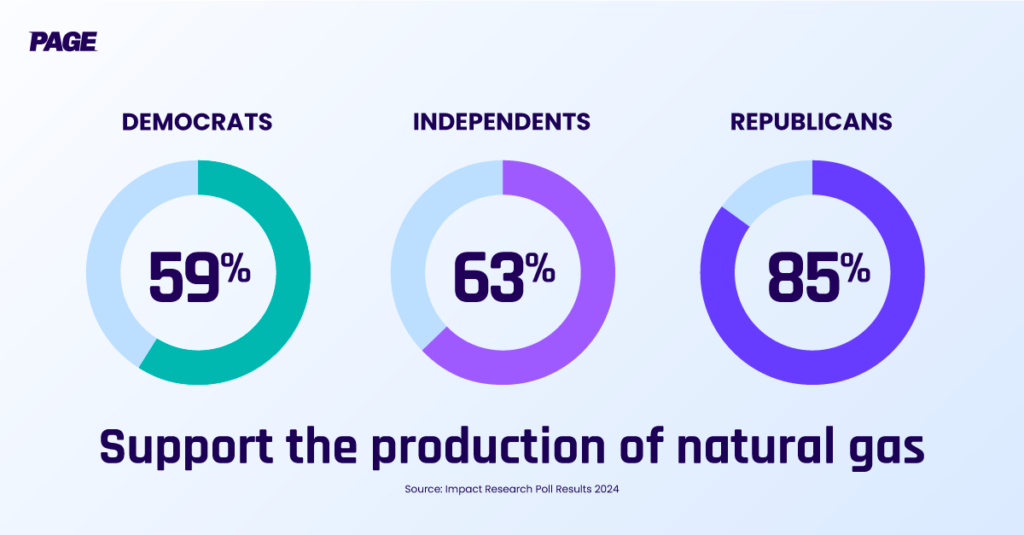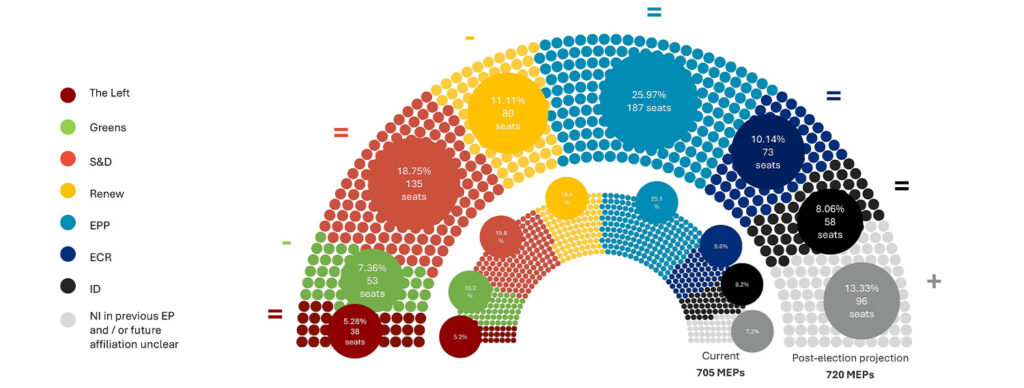Shying away from natural gas could cost candidates support in November
Pursuing perfection at the expense of the good would derail the climate progress we’ve achieved over the last several years
Ahead of the 2024 U.S. elections, policymakers have only a few more months to make their case to the American people on how to address several critical issues, including the direction of energy and climate policy at the national level.
Over the past two decades, the U.S. has made significant progress in reducing carbon emissions with the help of U.S. natural gas, which accounts for a substantial portion of the decrease. Additionally, the Biden Administration and Congress have successfully implemented a range of policies over the last several years to tackle the nation’s CO2 emissions further.
Voters, including 80% of Democrats, want a steady transition to clean energy using all available resources.
However, rather than taking credit for these victories, some lawmakers have hesitated to voice their support for natural gas, fearing alienating voters and hurting their re-election chances. Ironically, for these policymakers, shying away from natural gas could do the reverse and hurt their re-election efforts.
According to a new nationwide poll conducted by Impact Research and commissioned by the Partnership to Address Global Emissions (PAGE), 69% of voters, including most Democrats, support increasing natural gas production.

Backfiring Ambition
Pursuing perfection at the expense of the good could derail our climate goals and make it even more challenging to achieve the targets set out in the Paris Climate Agreement. Climate-focused policymakers who fail to voice their support for affordable, reliable, and secure energy policies that include natural gas could face disappointing results at the ballot box in November. In fact, voters – including 80% of Democrats – want a steady transition to clean energy using all available resources according to the poll.
Policymakers encountered a similar scenario in 1993 when the Democratic-controlled House passed a large, broad-based BTU energy tax policy featuring then-President Clinton's high-profile public push. While the bill failed in the Senate, it nevertheless proved consequential in the 1994 mid-terms – Democrats lost 54 seats and control of the House.
More recently, Democrats pursued an overly ambitious cap-and-trade bill in 2010—the American Clean Energy and Security Act. The bill sought to impose a market-based system that would set a ceiling on greenhouse gas (GHG) emissions while allowing companies to trade permits to meet these requirements.
Much like the BTU tax, the cap-and-trade bill never made it through the Senate, mainly because an independent EIA study commissioned by Senate Democrats found that it would increase energy prices. This misfire provided campaign fodder for Republicans during the election cycle, and Democrats paid the price at the ballot box, losing a historic 63 House seats during the 2010 mid-terms.
Democrats still have time to support a popular solution responsible for a large portion of U.S. emissions reductions.
Lessons for 2024
With half the world's population holding elections in 2024, politicians would be wise to learn from the past and support a steady, pragmatic, clean energy transition using all available resources.
As we saw last month, the EU's Green Party faced significant losses in parliamentary elections. In contrast, opponents of highly restrictive EU climate policies saw substantial gains in countries including France, Germany, the Netherlands, and Italy.
These results indicate that policymakers were moving faster on climate initiatives, impacting affordability and reliability, than voters were comfortable with. These losses may result in a dramatic shift in EU climate policy in the foreseeable future.
EP Elections: The Shape of the New Parliament

As U.S. policymakers look onward, they currently sit at a significant crossroads. They can either pursue overly ambitious climate policies that voters don't support or embrace a proven approach to tackling global emissions and ensure our energy security by supporting U.S. natural gas.
Candidates still have time to support a popular solution responsible for a large portion of U.S. emissions reductions. However, the clock is ticking, and voters have shown little patience with politicians who fail to heed public opinion.